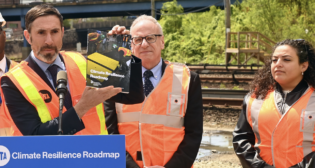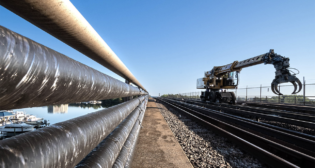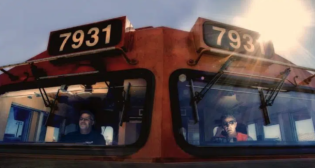
Transit Briefs: NC by Train, NJ Transit, TTC
Written by Marybeth Luczak, Executive Editor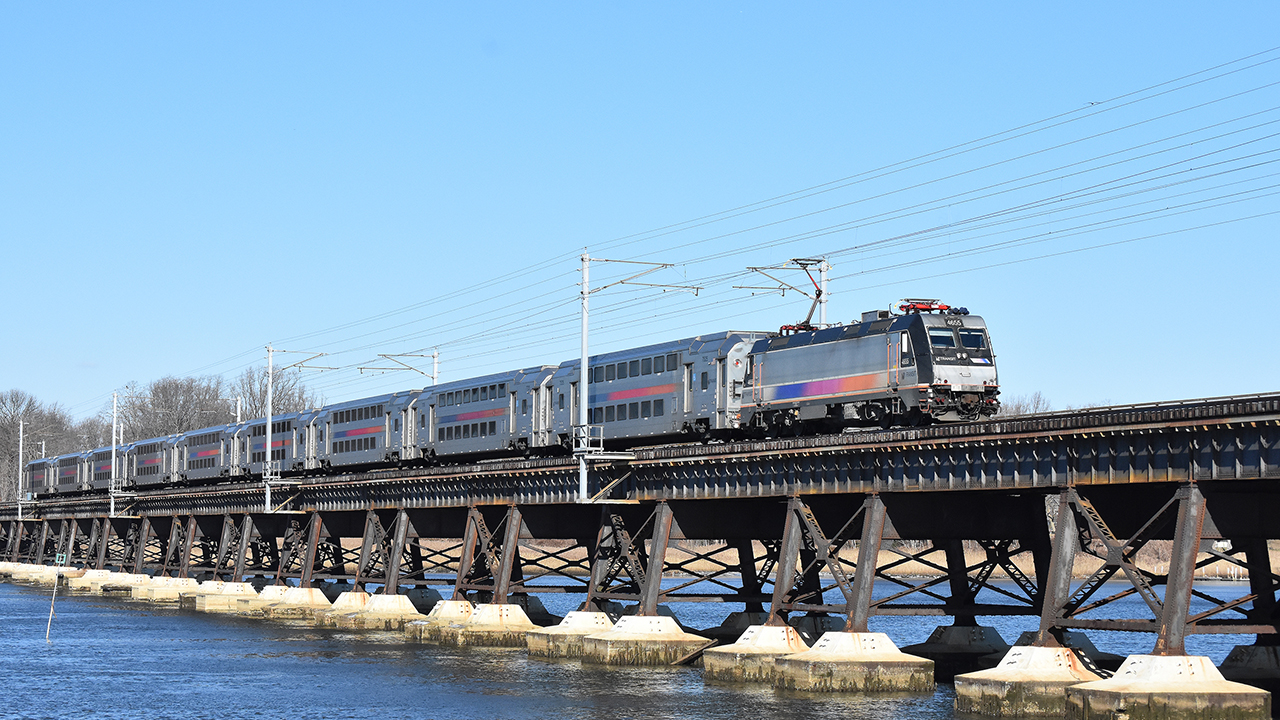
New Jersey Transit’s Board on April 10 unanimously approved a 15% fare hike starting July 1, with a 3% annual increase beginning July 1, 2025. (William C. Vantuono Photograph)
Ridership for NC By Train—North Carolina-supported Amtrak service—marks a milestone. Also, the New Jersey Transit (NJ Transit) Board approves a double-digit fare hike; and communications, electrical and signal workers at Toronto Transit Commission (TTC) will begin strike action on April 22 if a collective agreement is not reached.
NC By Train
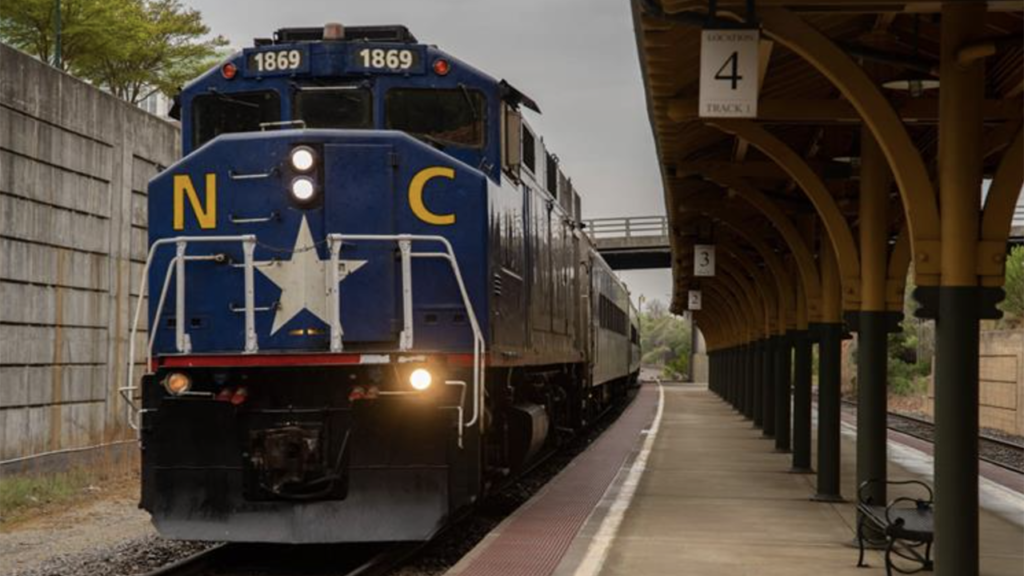
NC By Train saw its highest-ever combined ridership in March 2024, carrying more than 66,600 Piedmont and Carolinian intercity passenger rail riders, North Carolina Department of Transportation (NCDOT) reported April 11.
This follows combined ridership of 101,000 people for the first two months of 2024, compared with 83,000 riders for the same period last year. That difference represents a 21% increase over 2023 and a 65% increase over pre-pandemic passenger totals of 61,000 in 2019, according NCDOT.
“The ongoing record ridership shows that people love the service and are using it,” NCDOT Rail Division Director Jason Orthner said. “We want even more people to see how using NC By Train can be an option for them. We’re excited to partner with a variety of cities and organizations along the Piedmont Corridor between Raleigh and Charlotte to show people all the places and events they can get to using the train.”
NJ Transit
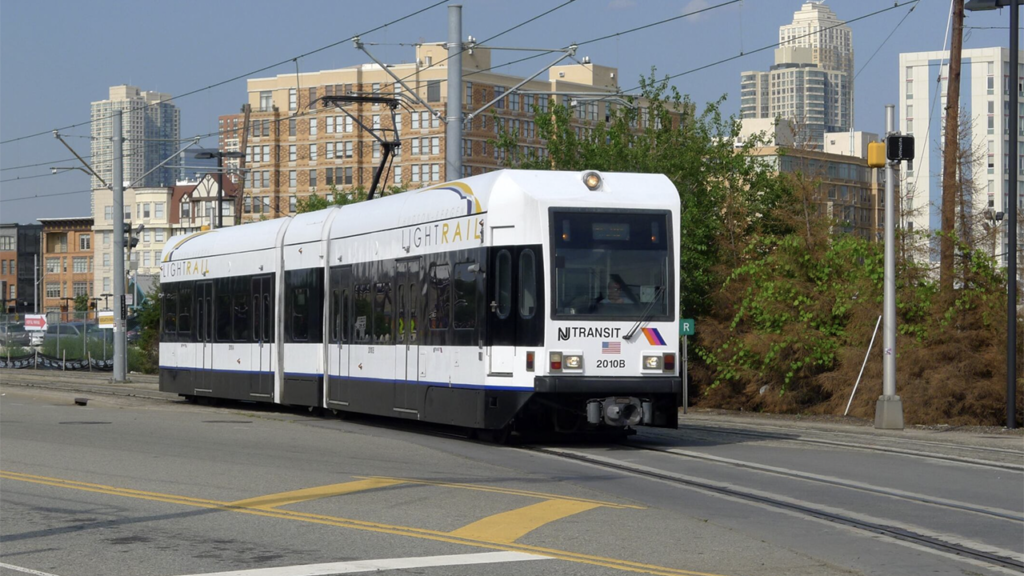
NJ Transit’s Board of Directors on April 10 unanimously approved a 15% fare hike starting July 1, 2024, with a 3% annual increase beginning July 1, 2025, according to news reports, which noted that this is the first time in nearly 10 years the transit agency has risen fares for its bus, commuter rail and light rail services.
The move comes as the state of New Jersey is suing the New York Metropolitan Transportation Agency over its congestion pricing plan, “which raises money to fund mass transit in New York by charging $15 daily for drivers in Manhattan’s Central Business District,” ABC7 New York reported April 10. “That plan is expected to go into effect mid June, although it is facing several court challenges.”
NJ Transit proposed the fare hike in late January, after the transit agency’s preliminary estimates for FY 2025 identified a budget deficit of $119 million. It said the increase, along with NJ Transit “internal efficiencies, savings and revenue enhancements,” would allow for a fully funded FY 2025 operating budget that “avoids reducing service levels.”
According to NBC4 New York, the fare increase “calls to preserve service at current levels for the next fiscal year but offered no guarantees for the following years.”
“Since 2015, NJ Transit has held the line on fare increases while not only improving service performance, but adding additional service on more than 100 bus routes and implementing substantial emergency service to support customers abandoned by multiple private bus carriers,” the transit agency said in late January. “In addition, NJ Transit has improved the customer experience through a variety of enhancements since 2018, including fully restoring the ranks of locomotive engineers, delivering a highly rated and completely redesigned NJ Transit Mobile App, introducing new fare payment technologies, and graduating more than 2,300 new bus operators, along with numerous other improvements. NJ Transit has also introduced several improvements for its Access Link paratransit service customers. … And all of this while operating the system with the highest standards of safety and security, including meeting the federal requirements for Positive Train Control in 2020 and expanding the presence of New Jersey Transit Police Department officers throughout the system.”
Additionally, since the pandemic began, ridership has returned to approximately 80% of pre-COVID levels, with many peak period trips “at or exceeding pre-pandemic levels,” NJ Transit reported in late January. However, NJ Transit said it is entering the fifth consecutive year of ridership that will be below pre-COVID levels, which has resulted in a reduction of nearly $2 billion in farebox revenue. The agency said it has used federal COVID relief funding over a multi-year period to maintain full service levels, but that funding will be exhausted in FY 2025, which runs from July 1, 2024, through June 30, 2025.
NBC4 New York reported that since 2015, “the agency says inflation has increased by more than 30%, which has impacted operational costs, contracted services, contractual wage increases of around 10,000 of the agency’s employees and healthcare costs—the latter increasing 47% during this time. On top of the inflation, NJ Transit said costs to run bus and rail service have gone up as well.”
To address NJ Transit’s looming budget deficit, ABC7 New York reported, New Jersey Gov. Phil Murphy “is also proposing a corporate transit tax that imposes a 2.5% charge on companies that earn more than $10 million a year. … That will be debated in the state legislature ahead of the July 1 budget deadline.”
TTC
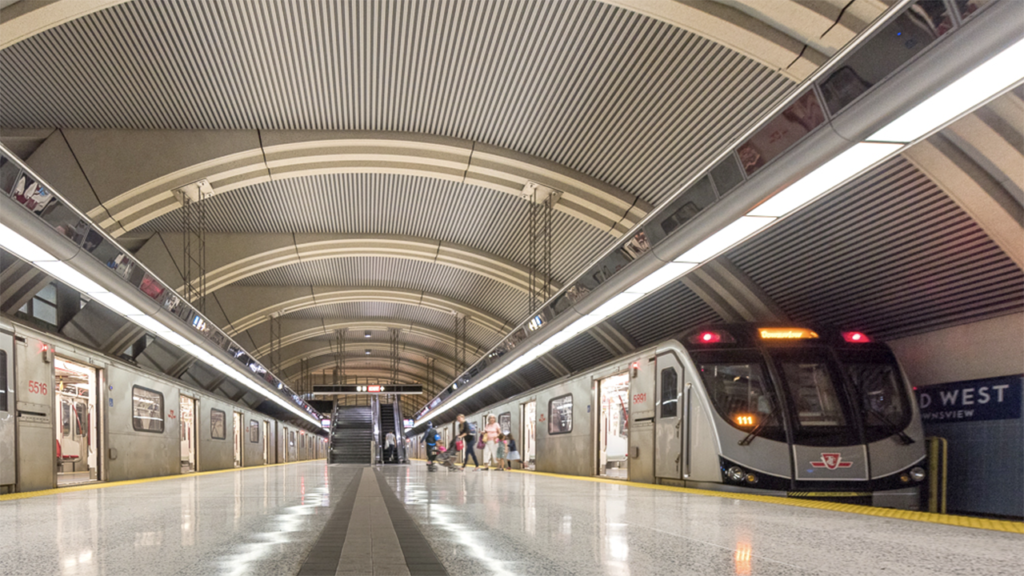
The Canadian Union of Public Employees (CUPE) Local 2, which represents 661 streetcar overhead and subway signal maintainers and others at TTC, voted in favor of a strike mandate on Feb. 8. The parties have been negotiating a collective agreement since 2022 and talks continue, TTC reported Feb. 9 and again April 11. The previous agreement expired in March 2022.
“Although negotiations are ongoing, Local 2 has advised that its members will begin strike action on Mon., Apr. 22, should an agreement not be reached,” TTC CEO Rick Leary said in an April 11 statement. “Both Local 2 and TTC representatives remain at the bargaining table with the intention of reaching a negotiated settlement without the need for job action.
“Last November, the TTC Board approved a bargaining mandate. We are committed to reaching an agreement that is fair to Local 2 employees while being affordable for the taxpayers of Toronto.
“I am committed to keeping our customers and employees apprised of any changes related to these negotiations in a timely manner …
“In the meantime, we will continue to negotiate in good faith with the ultimate goal being an agreement that avoids job action and service disruptions.”
The TTC is providing updates on its website.


